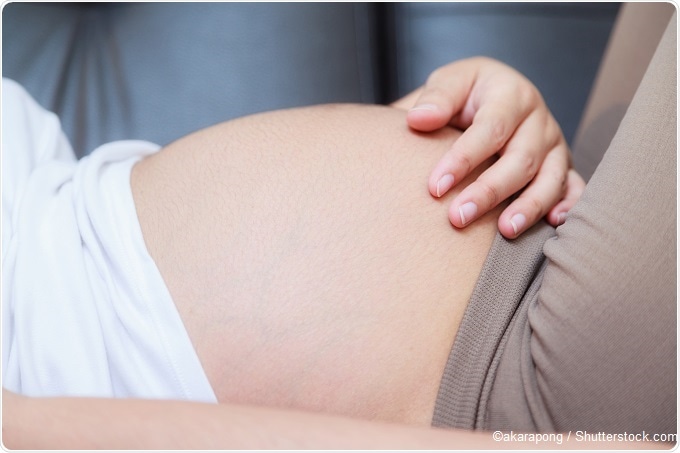Constipation becomes a problem during pregnancy for around 50% of women and causes abdominal pain or discomfort, straining when passing a stool and infrequent bowel movements.

Cause
Hormonal changes during pregnancy are thought to cause constipation by relaxing the muscles in the intestine. This serves to slow the movement of food through the digestive system and enable more time for nutrients to be absorbed into the bloodstream and delivered to the baby. However, it also allows more time for fluid to be removed, which can result in constipation.
Other factors that may contribute include anxiety, reduced exercise and insufficient fiber or fluid intake. Iron supplements can also contribute to constipation.
Prevention
Pregnant women can take some measures to avoid constipation, including the following:
- Maintaining a high fiber diet
Diet should be rich in high-fiber foods such as fruit, vegetables, whole grains, beans, prunes and bran. Women should aim to include 25 to 30 grams per day of fiber in their diet. A fiber supplement can also be used if approved by a healthcare provider.
- Maintaining an adequate fluid intake
The movement of food through the body is slowed during pregnancy, which enables more water than usual to be removed from waste, which can lead to hardened stools and constipation.
It is important that pregnant women drink plenty of fluids, especially if they are upping their intake of fiber. Adequate hydration can help stools to stay soft. Ideally, 10 to 12 cups of fluid should be drunk every day.
A high fiber diet mixed with plenty of fluids is the most effective combination for helping the body to eliminate waste effectively. Fluid intake may need to be further increased in hot or humid environments or when exercising. An increased fluid intake should also be maintained after the baby is born because the body will use as much fluid as possible to make breast milk.
- Exercising regularly
Reduced physical activity increases the likelihood of constipation occurring. Engaging in moderate exercise such as swimming, walking and other aerobic activities stimulates the bowels, which can improve intestinal function and prevent constipation. Women should aim to exercise for 20 to 30 minute periods at least three times a week but ideally they should be active on a daily basis.
Exercising during pregnancy does not pose a danger to the baby and some evidence suggests that women who stay physically active during pregnancy encounter fewer problems in the later stages of pregnancy and during labour. Exercises that strengthen the muscles are particularly beneficial because improved muscle strength can help with carrying the weight that is gained during pregnancy. These will also improve joint strength and circulation, as well as easing backache.
- Using over-the-counter therapies
Stool softeners moisten the stool, making it easier to pass. Stool softeners and other types of laxatives should only be used if approved by a healthcare provider. Some stool softeners and other laxatives are considered safe for use during pregnancy, while others are not, so women should always seek medical advice.
Reducing or stopping use of iron supplements
It is important to maintain a healthy iron level during pregnancy, but too much iron can contribute to constipation. A healthy diet is often enough to provide adequate iron during pregnancy, but women can have their iron level checked by their healthcare providers and discuss any recommendations for managing iron intake, if necessary. Women may be advised to change their iron supplements or reduce the amount they take.
Sources
- www.mayoclinic.org/…/faq-20058550
- www.mayoclinic.org/…/bgp-20055812
- www.mayoclinic.org/…/art-20047208
- www.nhs.uk/…/common-pregnancy-problems.aspx
- americanpregnancy.org/pregnancy-health/constipation-during-pregnancy/
Further Reading
- All Pregnancy Content
- Early Signs of Pregnancy
- Is it Safe to Exercise During Pregnancy?
- Pregnancy: 0-8 weeks
- Pregnancy: 9 – 12 weeks
Last Updated: Feb 27, 2019

Written by
Sally Robertson
Sally has a Bachelor's Degree in Biomedical Sciences (B.Sc.). She is a specialist in reviewing and summarising the latest findings across all areas of medicine covered in major, high-impact, world-leading international medical journals, international press conferences and bulletins from governmental agencies and regulatory bodies. At News-Medical, Sally generates daily news features, life science articles and interview coverage.
Source: Read Full Article
